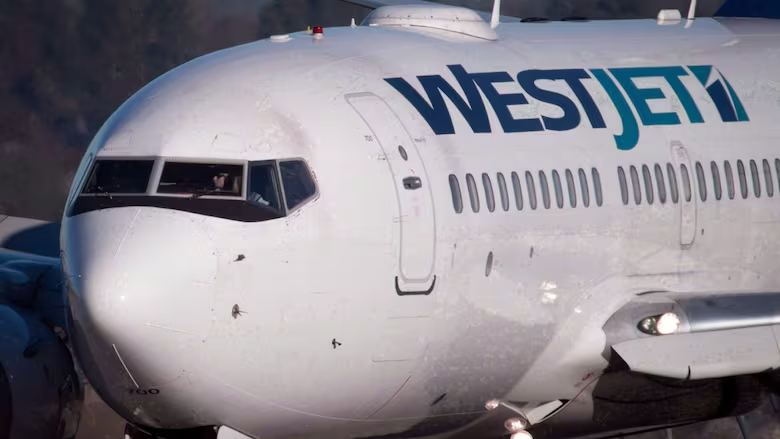Canadian travellers should welcome unionization at WestJet
We need airline workers to feel that they can speak out about safety issues without fear of losing their jobs

Unionization at WestJet is coming. Flight dispatchers have signed union cards, quick on the heels of the positive union vote by the airline's 3,000 cabin crew employees last month, as well as pilots last year.
After decades with a non-union workforce, the shift at WestJet is a major milestone. It also suggests that the organizing environment in Canada may be less hostile than in the United States, where recent Supreme Court and administrative decisions signal a national shift away from trade union protections.
It also fits with our history: Canadian airline employee unions date back to the 1930s, and from the beginning they fought not only for improved wages and working conditions, but also for better safety standards in the sky. Unionization is thus a win-win for Canadian consumers and workers.
Speaking out about safety concerns
We don't like to think about air travel as dangerous, but it obviously can be, especially when something goes wrong. Airline employees play a crucial role in ensuring that air travel remains safe for everyone: from ensuring that planes are fit to fly and are properly staffed, to piloting them safely to their destination and evacuating passengers in the event of an emergency. We need airline workers to feel that they can speak out about safety issues without fear of losing their jobs. Unions help ensure that they can.
In the 1930s, pilots in Canada and the U.S. formed the Air Line Pilots Association (ALPA) to help them fight back against "pilot pushing," which was basically airlines pressuring pilots to fly regardless of the conditions. Flight attendants in both countries bargained for mandatory rest periods between shifts and scheduling that did not push women and men beyond their limits.
By the 1960s, the Canadian Air Line Flight Attendants Association was routinely lobbying the federal government to enact better safety training standards. The airlines offered female cabin crew members make-up lessons, but workers knew they really needed safety lessons.
-
3,000 WestJet cabin crew employees officially unionized, CUPE says
-
OPINION | WestJet's labour dispute is about expanding union influence, not protecting existing jobs
In the years since, airline employee unions in Canada have continued to lobby for improved air travel safety. Flight attendant unions have repeatedly pushed back against company and government attempts to reduce the number of crew members required on flights. In 2017, ALPA spoke out against planned changes to the maximum hours that pilots can fly without a break, drawing attention to the dangers of pilot fatigue. The chair of the Air Transportation Association of Canada, however, spoke against decreasing the number of hours pilots can fly without a break, arguing that the change would increase costs for airlines.
Then there are issues of dismissal. In the 1980s, Air Canada fired a flight attendant for several minor infractions, including eating in view of passengers and wearing muddy shoes. The attendant's union questioned whether the dismissal was warranted, pointing out that he had saved a passenger's life when she choked on a sandwich mid-flight. But the airline and the arbitrator overseeing the case were unmoved. As passengers we wonder: would we rather have a flight attendant who could save us from a sandwich lodged in our throats, or one careless enough to eat in front of us?
Low-cost competitors
It is not surprising that WestJet workers have chosen to unionize now, as the company continues its expansion. After operating for 20 years as the hip and fun low-cost alternative to the stodgy-seeming (and highly unionized) Air Canada, WestJet's once-novel operation has faced increased competition over the last several years from new, ultra-low cost airlines. In an effort to conquer new markets and increase profits, WestJet has added new international routes and launched its own budget airline.
It's also possible that the airline's lack of a seniority system (something that is commonplace at unionized airlines) may have lost its appeal for long-time employees, many of whom still have to bid for shifts against new employees. Pilots and flight attendants both cited seniority as a key issue in their union campaigns, so it will likely be one of the first things they try to address in negotiations with their employer.
Whatever the reasons, WestJet is on its way to becoming a fully unionized airline, something that all Canadian consumers should celebrate. A unionized workforce is an empowered workforce, and an empowered workforce is more likely to speak up about safety issues. Though some people will decry airline unionization over concerns that it will increase ticket prices, any potential increase is a small price to pay for the safety and security of passengers and workers.
Joan Sangster is a Vanier Professor at Trent University. Julia Smith is SSHRC Postdoctoral Fellow at Rutgers University.
This column is part of CBC's Opinion section. For more information about this section, please read this editor's blog and our FAQ.